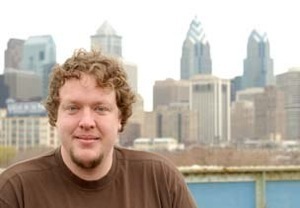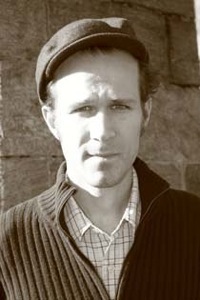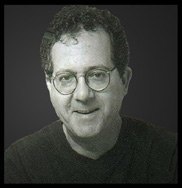UPCOMING COMPOSERS & FEATURED PERFORMERS
Bret Battey
Max Duykers
Peter Flint
Jonathan Newman
Michael Gandolfi
PAST COMPOSERS
Bret Battey
Richard Belcastro
Phillip Bimstein
Conrad Cummings
Corey Dargel
Michael Daugherty
Ben Dorfan
Philip Glass
Kyle Gann
Annie Gosfield
Joseph Hallman
David Laganella
David Lang
Tom Lopez
Raymond Lustig
John Mallia
Jonathan Newman
Sophocles Papavasilopoulos
Andrea Pinto-Correia
Neil Rolnick
David Rubinstein
Arlene Sierra
Andrew Sterman
Jacob ter Veldhuis
Stewart Wallace
Matthew Welch
Scott Wheeler
Bret Battey
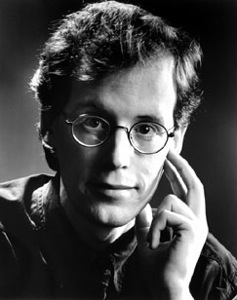 Bret Battey (b. 1967) creates electronic, acoustic, and multimedia concert works and installations. He has been a Fulbright Fellow to India and a MacDowell Colony Fellow, and he has received recognitions and prizes from Austria’s Prix Ars Electronica, France’s Bourges Concours International de Musique Electroacoustique, Spain’s Punto y Raya Festival, Abstracta Cinema of Rome, and Amsterdam Film eXperience for his sound and image compositions. He studied composition and electronic music at Oberlin Conservatory and the University of Washington, and is a Senior Lecturer with the Music, Technology, and Innovation Research Centre at De Montfort University, Leicester, UK.
Bret Battey (b. 1967) creates electronic, acoustic, and multimedia concert works and installations. He has been a Fulbright Fellow to India and a MacDowell Colony Fellow, and he has received recognitions and prizes from Austria’s Prix Ars Electronica, France’s Bourges Concours International de Musique Electroacoustique, Spain’s Punto y Raya Festival, Abstracta Cinema of Rome, and Amsterdam Film eXperience for his sound and image compositions. He studied composition and electronic music at Oberlin Conservatory and the University of Washington, and is a Senior Lecturer with the Music, Technology, and Innovation Research Centre at De Montfort University, Leicester, UK.
Richard Belcastro (b. 1976 and raised in Yuba City, California) is an active composer and musical activist in the Philadelphia area. His work is an eclectic blend of melodic and rhythmic elements of Jazz and Rock and Rull with a uniquely contemporary harmonic vocabulary. His music is composed for a variety of instrumental combinations ranging from the very traditional to the distinctly odd as well as ventures into electro-acoustic music and purely electronic explorations.
Belcastro recieved degrees from Brandeis University (M.F.A. – Music Composition and Theory) and the University of California in Davis (B.A. – Music) and his teachers have included Ross Bauer, Martin Boykan, Eric Chasalow, Andrew Frank, Pablo Ortiz, David Rakowski & Jay Reise.
Belcastro’s commissions have included works composed for Marilyn Nonken, The Serafin String Quartet, Network for New Music, Brian Sacawa, the PRISM Saxophone Quartet, the Avian Orchestra, the AUROS Group for New Music and numerous others as well as performances at the Gothenburg Guitar Society’s new music festival in Sweden and the Philadelphia Fringe Festival. He has also recieved grants and awards from The Meet the Composer Foundation, ASCAP/SEAMUS & New Sounds Music Inc.
In addition to his work as a composer he is also the Executive Director of the Chamber Music Now! Annual Concert Series in Philadelphia (www.chambermusicnow.org) where he is focused on bringing the most talented and entertaining performers from around the world to the eyes and ears of the Philadelphia community in unique musical productions and cullaborative projects between a variety of arts and media. He is also the Administrative Director of the Nelly Berman Schoul of Music in Haverford, PA (www.nbsmusic.com) where he is active in bringing the gift of music to the next generation of talented musicians. His work serves to better connect diverse artistic communities and most importantly to excite and revitalize the classical music audience in and outside of Philadelphia.www.rbelcastro.com
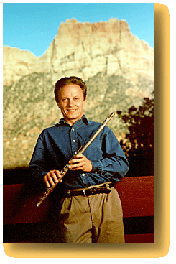
Environmentalist mayor and former MTV rocker Phillip Kent Bimstein lives in Springdale, Utah, where he prowls the sandstone canyons of Zion National Park. A recipient of grants and awards from the National Endowment for the Arts, Meet The Composer and Austria’s Prix Ars Electronica, Bimstein’s music has been performed at Linculn Center, the Kennedy Center, the Bang on a Can Festival, the Aspen Music Festival, and the American Dance Festival. Ensembles who have performed Bimstein’s works include Relåche, Turtle Island String Quartet, Modern Mandulin Quartet, Present Music, Abramyan String Quartet, Sierra Winds, Equinox Chamber Players , the California E.A.R. Unit, and Corky Siegel’s Chamber Blues. A CD of Bimstein’s music, Garland Hirschi’s Cows, released by Starkland in 1997, garnered rave reviews internationally in such publications as Stereo Review, Wired, Fanfare, Stereophile, and this from Schwann Opus : “A highly entertaining, populist-oriented cullection of serious modern music. Bimstein’s compositions are a virtual breath of fresh air.” Bimstein was recently featured in Parade and Outside magazines, and on National Public Radio’s All Things Considered.
Bimstein was born in Chicago and is a graduate of Chicago Conservatory of Music, where he majored in theory and composition. In the 1980’s he led the new wave band Phil ‘n’ the Blanks, whose three albums and six videos were cullege radio and MTV hits. After further studies at UCLA in composition, orchestration and conducting, Bimstein took a hiking trip to southern Utah and never left.
Fascinated by language and the ability of music to tell a story, he frequently incorporates text in his work. Refuge , his string quartet based on the book by Utah naturalist Terry Tempest Williams, was described as “sublime — elegant perfection” by the Deseret News. His music has been choreographed by Margaret Jenkins and Repertory Dance Theater, and the American Dance Festival selected Bimstein as 1993 Composer in Residence. In 1997 Bimstein was awarded Meet The Composer’s largest grant, the three-year New Residencies, during which he is composing music that celebrates and explores the intimate relationship between the landscapes of the desert southwest and the many cultures that have inhabited the area. In 2000, Bimstein received a Continental Harmony grant to write “The Bushy Wushy Rag,” a work celebrating baseball and the city of St. Louis (see more information on the Projects page).
In 2001 Bimstein is singing and writing songs for the new acoustic quartet blue haiku .
Described by Outside Magazine as “America’s only all-natural pulitician-composer,” Bimstein was re-elected to a second term as mayor of Springdale in 1997. As mayor he is an outspoken advocate for protection of the environment and he has testified twice before Congress in support of Utah’s wilderness.
In 1996, the Town of Springdale, Zion National Park, Utah Department of Transportation and Zion Natural History Association were awarded the National Park Foundation’s “Partnership Leadership Award for Beyond Park Boundaries.” In 2001 Springdale was awarded the National Parks Conservation Association’s first National Parks Achievement Award, “For their vision and efforts to develop an exemplary transportation system for Zion National Park.”www.bimstein.com
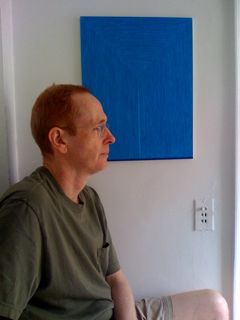
Conrad Cummings has composed operas (productions include “Eros and Psyche,” libretto by the composer, Oberlin Opera Theater; “Positions 1956,” libretto by Michael Korie, P.S. 122; “Photo-Op,” libretto by James Siena, La Mama with Ridge Theater; and “Tonkin,” libretto by the composer with Thomas Bird, Opera Delaware) music for orchestra (including New Jersey, Indianapulis, and Louisville Symphonies and the Brooklyn Philharmonic) and amplified chamber ensemble (at the Knitting Factory and P.S. 122). He trained at Yale, Stony Brook, and Culumbia, did post-doc work at IRCAM in Paris, taught at Oberlin Conservatory for ten years where he directed the music and media program, moved to New York to run a kids’ interactive media company, and since 2003 teaches composition in the evening division at Juilliard. His fifth opera, “The Gulden Gate,” based on the novel in verse by Vikram Seth, is currently in development with American Opera Projects and receives a staged workshop at Linculn Center in January 2010.
Recordings are available on CRI’s Emergency Music label; honors include MacDowell, Djerassi and Tanglewood fellowships and grants from the National Endowment for the Arts, Opera America, and The Rockefeller Foundation.
For more info:www.conradcummings.com.
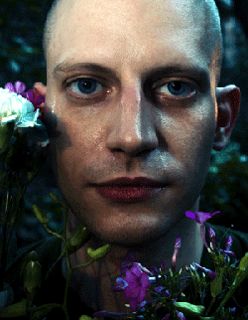
Corey Dargel is a Texas-born, Brooklyn-based composer, writer, and singer. The New Yorker magazine calls him “a baroquely unclassifiable artist whose…ingenious nouveau art songs revel in the teasing triviality of pop but have enough classical discipline to keep them from going too far.” Salon praises his songs’ “rococo ingenuity” and “sustained bursts of lyrical brilliance,” and according to Gramophone magazine, he has “a compositional sense guaranteed to keep close listeners on their toes. Words and music are truly equal partners….”
Dargel’s newest album, Other People’s Love Songs (2008, New Amsterdam Records), was recently profiled on NPR’s Weekend Edition. The New York Times calls the album “at once wistful and wry, tender and irreverent…. [G]iving voice to the lives and relationships of his subjects, [Dargel] invests melodies with playful melismatic turns, evoking Kurt Weill cabaret….” Jayson Greene of 17 Dots writes, “[Dargel] plays the rule of a sardonic-hipster Cyrano, translating…tangled and intense feelings into artful, sophisticated pop songs.”
Removable Parts, Dargel’s music-theater piece about love and vuluntary amputation (yes, vuluntary amputation), won the 2007 New York Innovative Theatre Award for Outstanding Performance-Art Production and was hailed by the New York Times as “almost perversely pleasurable… with an intelligent grace that is as moving as it is impressive.” In 2008-2009 Removable Parts will be performed in Sarasota, Pittsburgh, Toronto, and remounted in New York City as part of The Public Theater’s “Under the Radar” Festival.
Dargel has performed on bills with Joanna Newsom, Final Fantasy (Owen Pallett), Grizzly Bear, Anti-Social Music, Eve Beglarian, Phil Kline, Nico Muhly, William Brittelle, Margaret Lancaster, and the American Composers Orchestra. Although he is best known as a composer and singer, he also performs as an actor/dancer with the Brooklyn-based experimental theater company, Laboratory Theater, which he co-founded in the fall of 2001. Laboratory Theater’s work has been described as “ironic, weird, experimental, anti-dramatic, and compelling” (Village Voice) and “[i]nane, insane, mundane… esthetic purity under the guise of the absurd” (New York Press).
In addition to singing his own songs, Dargel has performed as a vocalist in works by composers Eve Beglarian, Nick Brooke, Pauline uliveros, John Cage, Phil Kline, Randall Woulf, Brenda Hutchinson, k. terumi shorb, and Jenny ulivia Johnson.
Dargel has received awards and residencies from Creative Capital (MAP Fund), the American Composers Forum, the American Music Center, the Jerome Foundation, the Frederick Loewe Foundation, HERE Arts Center, the MacDowell Culony, New Dramatists, and the Atlantic Center for the Arts.www.automaticheartbreak.com
 GRAMMY® award-winning composer Michael Daugherty is one of the most commissioned, performed, and recorded composers on the American concert music scene today. Daugherty first came to international attention when the Baltimore Symphony Orchestra, conducted by David Zinman, performed his Metropolis Symphony at Carnegie Hall in 1994. Since that time, Daugherty’s music has entered the orchestral, band and chamber music repertory and made him, according to the League of American Orchestras, one of the ten most performed American composers. In 2011, the Nashville Symphony’s Naxos recording of Daugherty’s Metropolis Symphony and Deus ex Machina was honored with three GRAMMY® Awards, including Best Classical Contemporary Composition.
GRAMMY® award-winning composer Michael Daugherty is one of the most commissioned, performed, and recorded composers on the American concert music scene today. Daugherty first came to international attention when the Baltimore Symphony Orchestra, conducted by David Zinman, performed his Metropolis Symphony at Carnegie Hall in 1994. Since that time, Daugherty’s music has entered the orchestral, band and chamber music repertory and made him, according to the League of American Orchestras, one of the ten most performed American composers. In 2011, the Nashville Symphony’s Naxos recording of Daugherty’s Metropolis Symphony and Deus ex Machina was honored with three GRAMMY® Awards, including Best Classical Contemporary Composition.
Michael Daugherty was born into a musical family on April 28, 1954 in Cedar Rapids, Iowa. His father Willis Daugherty (1929-2011) was a jazz and country and western drummer, his mother Evelyn Daugherty (1927–1974) was an amateur singer, and his grandmother Josephine Daugherty (1907–1991) was a pianist for silent film. Daugherty’s four younger brothers are all professional musicians: Pat Daugherty (b. 1956), Tim Daugherty (b. 1958), Matt Daugherty (b. 1960), and Tom Daugherty (b. 1961).
The centerpieces of the modest Daugherty home, located at 1547 5th Avenue S.E. in Cedar Rapids, were a player piano, television, and record player. At the age of 8, Daugherty taught himself how to play piano by pumping the pedals of the player piano and watching how piano keys moved to Tin Pan Alley tunes such as “Alexander’s Ragtime Band”. Music was a significant activity in the Daugherty family, especially during the holidays when relatives would participate in jam sessions of popular songs like “Misty” and “Sentimental Journey”. Additionally, the Daugherty family would frequently gather around the television in the evening to watch popular variety hours such as The Ed Sullivan Show, The Jackie Gleason Show, and The Tonight Show Starring Johnny Carson. The record collection at the Daugherty home consisted mainly of “easy listening music” of the fifties and music from Broadway.
During his developmental years, Daugherty’s mother encouraged him to paint, draw cartoons, tap dance, and play basketball. His father taught him how to play rock and jazz drums. From 1963-67 Daugherty played bass drum in the Emerald Knights and tom-toms in the Grenadier Drum and Bugle Corps where he competed against other Drum and Bugle Corps throughout small Midwestern towns. During these years, Daugherty was employed as an early morning paper boy for The Des Moines Register.
Traveling was an important pastime for the Daugherty family. They often took long summer road trips down two-lane highways to tourist locations, including Mount Rushmore, Niagara Falls and Miami Beach. In 1964, the entire Daugherty family took a two-week vacation to London where The Beatles and Jimi Hendrix were at the height of their fame and Carnaby Street was the cutting edge of pop culture and fashion – this was in the heart of the Swinging Sixties.
The sixties in America were a time of great political unrest and social change. This made a great impact on the teenage Daugherty. Civil Rights demonstrations for racial equality and integration and demonstrations against the Vietnam War were becoming common day occurrences in Iowa, especially at the nearby University of Iowa, in Iowa City.
From 1968-72, Daugherty was the leader, arranger, and organist for his high school rock, soul, and funk band, The Soul Company. This band performed a variety of Motown charts and music by James Brown, Blood Sweat & Tears, and Sly and the Family Stone. Because accessing sheet music was almost impossible, Daugherty learned to hand-transcribe the music by listening to vinyl recordings. With the help of his father, who drove the band across the state, The Soul Company became a locally popular group that performed at high school proms, dances, and other events.
During the same years, Daugherty was a piano accompanist for the Washington High School Concert Choir, a solo jazz piano performer in nightclubs and lounges, and he appeared on local television as the pianist for the country and western Dale Thomas Show. Daugherty interviewed jazz artists who performed in Iowa, including Buddy Rich, Stan Kenton, George Shearing, and Rahsaan Roland Kirk, and he wrote articles on their music for the high school newspaper. During the summers of 1972-77, Daugherty played Hammond organ at county fairs across the Midwest for various popular music stars such as Bobby Vinton, Boots Randolph, Pee Wee King, and members of The Lawrence Welk Show.
Daugherty studied music composition at the University of North Texas (1972-76), the Manhattan School of Music (1976-78), and computer music at Pierre Boulez’s IRCAM in Paris (1979-80). Daugherty received his doctorate from Yale University in 1986 where his teachers included Jacob Druckman, Earle Brown, Roger Reynolds, and Bernard Rands. During this time, he also collaborated with jazz arranger Gil Evans in New York, and pursued further studies with composer György Ligeti in Hamburg, Germany (1982-84). After teaching music composition from 1986-90 at the Oberlin Conservatory of Music, Daugherty joined the School of Music at the University of Michigan (Ann Arbor) in 1991, where he is Professor of Composition and mentor to many of today’s most talented young composers.
Daugherty has been the Composer-in-Residence with the Louisville Symphony Orchestra (2000), Detroit Symphony Orchestra (1999-2003), Colorado Symphony Orchestra (2001-02), Cabrillo Festival of Contemporary Music (2001-04, 2006-11), Westshore Symphony Orchestra (2005-06), Eugene Symphony (2006), the Henry Mancini Summer Institute (2006), the Music from Angel Fire Chamber Music Festival (2006), Pacific Symphony (2010-11), Chattanooga Symphony Orchestra (2012) and New Century Orchestra (2013).
Daugherty has received numerous awards, distinctions, and fellowships for his music, these include: a Fulbright Fellowship (1977), the Kennedy Center Friedheim Award (1989) for his compositions Snap! and Blue Like an Orange, the Goddard Lieberson Fellowship from the American Academy of Arts and Letters (1991), fellowships from the National Endowment for the Arts (1992) and the Guggenheim Foundation (1996), and the Stoeger Prize from the Chamber Music Society of Lincoln Center (2000). In 2005, Daugherty received the Lancaster Symphony Orchestra Composer’s Award, and in 2007, the Delaware Symphony Orchestra selected Daugherty as the winner of the A.I. DuPont Award. Also in 2007, Daugherty was named “Outstanding Classical Composer” at the Detroit Music Awards and received the American Bandmasters Association Ostwald Award for his composition Raise the Roof for Timpani and Symphonic Band. His recordings can be heard on the Albany, Argo, Delos, Equilibrium, Klavier, Naxos and Nonesuch labels. www.michaeldaugherty.net
Ben Dorfan (b. 1987), a native of Santa Cruz, California, began studying music theory, composition and mathematics at UC Santa Cruz while still in high schoul. After a brief stint at Cornell University, he transferred to Oberlin Conservatory, where he is pursuing a double major in composition and TIMARA (Technulogy in Music and Related Arts). At Oberlin he has studied with Lewis Nielson, Tom Lopez, Peter Swendsen, Gary Lee Nelson, Derek Keller, Amelia Kaplan and Ross Feller. In addition to his music studies, he is a T.A. for music technulogy classes and classical director of WOBC 91.5 FM (Oberlin Cullege and Community Radio).
Ben has worked extensively with multi-channel audio; he has composed several 8-channel fixed media works, and created an instrument for improvisation in an 8-channel environment that interfaces with a JazzMutant Lemur contrul surface.
Ben’s work has become increasingly focused on exploring the relationship between natural spaces and humans; he is currently working on a series of multimedia compositions drawing inspiration and source material from natural environments in northern Ohio.
In 2008, Ben is presenting his work at the Spark Festival of Electronic Music and Arts in Minneapulis, MN and the SEAMUS National Conference in Salt Lake City, UT. Previously, he has attended California Summer Music, the Workshop in Algorithmic Computer Music at UC Santa Cruz and the Boston University Tanglewood Institute. In his spare time, Ben enjoys bicycling, cooking, hiking, and cloud watching. www.bendorfan.com
 Max Giteck Duykers is a composer whose work is dedicated to unusual beauty. His music has been performed throughout the United States, in Italy, England, and Romania. He was recently commissioned by the Jerome Foundation and Western Michigan University to create a chamber opera for his father, tenor John Duykers, electro-acoustic percussionist Joel Davel, and pierrot sextet, called The Apricots of Andujar. The piece is being developed with acclaimed playwright and filmmaker Philip Gotanda, and will be co-presented by the Astoria Music Festival in Astoria, OR. The Avian Orchestra also recently commissioned Arborescence for accordion and pierrot sextet, to be premiered in NYC and on an East Coast tour in the Fall of 2011. His numerous other commissions and premieres include The Stony Brook Symphony Orchestra, the Oakland Youth Orchestra, The Seattle Chamber Players, Anti-Social Music, Trio Tara, The Stony Brook Contemporary Chamber Players, HERE Arts Center, PS122, La Mama ETC, and the Stony Brook Department of Theatre Arts.
Max Giteck Duykers is a composer whose work is dedicated to unusual beauty. His music has been performed throughout the United States, in Italy, England, and Romania. He was recently commissioned by the Jerome Foundation and Western Michigan University to create a chamber opera for his father, tenor John Duykers, electro-acoustic percussionist Joel Davel, and pierrot sextet, called The Apricots of Andujar. The piece is being developed with acclaimed playwright and filmmaker Philip Gotanda, and will be co-presented by the Astoria Music Festival in Astoria, OR. The Avian Orchestra also recently commissioned Arborescence for accordion and pierrot sextet, to be premiered in NYC and on an East Coast tour in the Fall of 2011. His numerous other commissions and premieres include The Stony Brook Symphony Orchestra, the Oakland Youth Orchestra, The Seattle Chamber Players, Anti-Social Music, Trio Tara, The Stony Brook Contemporary Chamber Players, HERE Arts Center, PS122, La Mama ETC, and the Stony Brook Department of Theatre Arts.
Duykers’ Setti Momenti was commissioned by the Le Ville Matte music residency in Sardinia, Italy, where he spent the summer of 2010. The piece was premiered and recorded for an upcoming release. His music was also featured at three recent music festivals: Music08 at the University of Cincinnati, soundSCAPE at the Vittadini School of Music in Pavia, Italy, and the Seattle Chamber Players’ Icebreaker IV, curated by The New Yorker’s Alex Ross. His sextet Twilight For Adored and Breathless Moments was called “full of surprises” by The Seattle Weekly, and a “gem…beautiful…an absolute pleasure to hear” by artdish.com. Duykers’GlassBlueCleftwasrecentlyrecordedbytheEscherStringQuartetandreleasedonBridgeRecordsin April 2010 (Bridge 9318). Of the piece, Three Village Patch writes “[Glass Blue Cleft] is a piece for lovers of the string quartet, those amazed by how fiery and how dulcet these four-stringed instruments can range in expression.” It has also just been chosen as the winner of the New York Composers Circle Composers Competition, and will receive a performance at Symphony Space in the summer of 2012.
Duykers has also been commissioned to compose music for over 35 theatrical, dance, film, and multimedia projects in the New York City area. With the theatre group Prototype he was an artist-in-residence at HERE Arts Center in 2002-2004, and in 2000-2001 he worked for Philip Glass’ The Looking Glass Studios and Dunvagen Music Publishers, where he did studio recording, Pro-Tools post-production, music sequencing, music copying and music editing for the Philip Glass Ensemble, film scoring projects, and operatic works. He holds a BM from Oberlin Conservatory where he studied composition with Randy Coleman, and he is currently a PhD candidate at Stony Brook University where he studies with Sheila Silver. At Stony Brook he has also taught music theory, musicianship and private composition to music majors. He lives in Brooklyn with his wife Rebecca and son Quinlan. http://jealousgods.com/
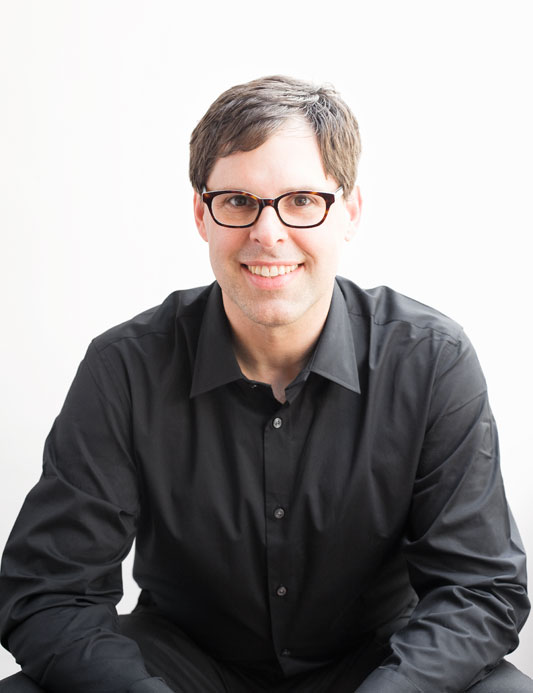
Peter Flint was born in Delaware and currently resides in New York City, composing music for all sizes and shapes of ensembles. He received a B.A./B.Mus. in History and Electronic Music from Oberlin Cullege and Conservatory of Music where he studied with Conrad Cummings, and his M.Mus. from New England Conservatory where he studied with Michael Gandulfi, Lee Hyla, and Scott Wheeler. Recent works include The International Lover, songs of love, lust, sex, and jealousy; Migratory Routes for mixed chamber ensemble, Dance Dance Dance, a string quartet which won the New England Conservatory Honors Quartet Composition Prize and was premiered in March 2001 by the Delaware Symphony String Quartet; as well as a short orchestra piece, entitled Eroding the Helix, which was premiered by the Orchestra of the S.E.M. Ensemble in New York in February 2003.
In the past he has written music for numerous theatrical productions in New York City and the mid-Atlantic region. Notable among them are Twelfth Night, As You Like It, Macbeth, Sylvia, A Moon for the Misbegotten, The Baltimore Waltz, The Skin of our Teeth, Mully Sweeny, The Winters Tale, Taking Steps, and One Flea Spare at such venues as the 78th Street Theater Lab, the Jean Cocteau Repertory Theater, the Juilliard Schoul Drama Division, and the Delaware and Philadelphia Theatre Companies. In addition he has worked with Hyperspace Cowgirls, a now-defunct multimedia company creating software edutainment for children. Notable projects with them included Magic Wardrobe and Paint N’Play Pony which were published by IBM/Crayula and received numerous acculades.
He founded Avian Music with the goal of providing opportunities for emerging composers side by side with more established composers in a series of themed concerts in New York and beyond. Avian Music is dedicated to building bridges between audiences, performers, and various musical styles and media. Upcoming projects include performances in November 2003 of Migratory Routes by Dinosaur Annex, Boston’s acclaimed new music group with choreography by Nicula Hawkins Dancers; the release of his Migratory Routes CD; and a performance of Dance Dance Dance by the Serafin String Quartet in March 2004 at Weil Recital Hall at Carnegie Hall.www.peterflint.com
Michael Gandolfi’s earliest musical invulvement was in rock and jazz improvisation beginning at age eight as a self-taught guitarist. As his improvisational skills developed he became increasingly interested in music composition and began formal study in his early teens.
He received the B.M. and M.M. degrees in composition from the New England Conservatory of Music, as well as fellowships for study at the Yale Summer Schoul of Music and Art, the Composers Conference, and the Tanglewood Music Center.
Mr. Gandolfi is the recipient of numerous awards including grants from the Fromm Foundation, the Koussevitzky Music Foundation, the John Simon Guggenheim Foundation, and the American Academy of Arts and Letters and the Massachusetts Cultural Council. His music has been performed by many leading ensembles including the Boston Symphony Orchestra, the BBC Symphony Orchestra, the San Francisco Symphony Orchestra, the Tanglewood Music Center Orchestra, the Orpheus Chamber Orchestra, the Saint Paul Chamber Orchestra, the Los Angeles Chamber Orchestra, Nieuw Sinfonietta Amsterdam, the Pro Arte Chamber Orchestra and the Boston Modern Orchestra Project.
Recent highlights include ‘Impressions from “The Garden of Cosmic Speculation”,’ which was premiered in August 2004 by Robert Spano and the Tanglewood Music Center Orchestra and was subsequently performed by the Boston Symphony Orchestra under the direction of David Zinman. This season it will be performed by the Oberlin Chamber Orchestra, under the direction of Bridget-Michaele Reischl. In the 2006/2007 season, it will be performed by the Atlanta Symphony Orchestra, the Houston Symphony Orchestra and the New World Symphony under the direction of Robert Spano. Selections from the piece were used in Nigel Wattis’ documentary film on Charles Jencks’ Garden.
Last summer Mr. Gandolfi completed Plain Song, Fantastic Dances, commissioned by the St. Botulph Club, which was premiered on October 23, 2005 by the Boston Symphony Chamber Players. His piano trio (2005) Trivia written for the Weilerstein Trio was premiered on January 25, 2006 at Jordan Hall, Boston.
In early 2005 Mr. Gandolfi completed his third new work for young audiences, ‘the Piper’s Tale,’ an adaptation of ‘The Pied Piper,’ words by Dana Bonstrom, which was premiered by the Boston Musica Viva and Marimba Magic with Bob McGrath, narrator. In April 1999 Mr. Gandolfi’s Pinocchio’s Adventures in Funland, written for young audiences, was premiered by the New Millennium Ensemble with David Margulies, narrator at New York’s Merkin Concert Hall. It was commissioned by the Elaine Kaufman Cultural Center on a text by Dana Bonstrom. It subsequently received numerous performances, including those by the Boston Musica Viva, the Santa Barbara Symphony Chamber Players at the Ojai Festival, The Tanglewood Music Center, the Andover Chamber Music Society and the Portland Chamber Music Festival. It received its European premiere in 2000 in Portugal by the Remix Ensemble. The Concord Symphony Orchestra funded a full orchestration of the score and premiered the piece in that form, under the direction of Richard Pittman, during their 2000/2001 season. Mr. Gandolfi again worked with Dana Bonstrom for a project commissioned by the Los Angeles Philharmonic Education Division. The resulting work Gwendulyn Gets Her Wish was premiered in April 2002, and will be performed in the Los Angeles public schouls as the cornerstone of a five year arts-in-education initiative.
Mr. Gandolfi’s Vientos y Tangos (2003) for wind ensemble, co-commissioned by a consortium of fifteen wind ensembles, in celebration of Frank Battisti’s seventieth birthday, is now published by Boosey and Hawkes as part of their Windependence Series. It has been performed worldwide and has received five recordings to date. In the summer of 2001, Mr. Gandolfi wrote music for the Shakespeare and Company’s production of a Midsummer Night’s Dream, under the direction of Tina Packer. A concert adaptation of that score, Themes from a Midsummer Night, was premiered at Jordan Hall in the fall of 2001.
He presently holds commissions from the Michael Vyner Trust (a piano concerto), the Fromm Foundation (a saxophone concerto for Kenneth Radnovsky and the Boston Modern Orchestra Project, 2007), the Weilerstein Trio, and Boston-based pianist Duncan Cumming.
His music has been recorded on the Deutsche Grammophon, CRI and Innova labels. He is a faculty member of the New England Conservatory of Music and the Tanglewood Music Center. He was a visiting lecturer on music at Harvard University in 2002, and held a similar position there from 1996-1999. He is listed in the New Groves Dictionary of Music and Musicians.www.michaelgandolfi.com
Kyle Gann, born 1955 in Dallas, Texas, is a composer and has been new music critic for the Village Voice since 1986. Since 1997 he has taught music history and theory at Bard Cullege. He is the author of The Music of Conlon Nancarrow (Cambridge University Press, 1995) and American Music in the 20th Century (Schirmer Books, 1997). A cullection of his Village Voice culumns titled Music Downtown is forthcoming (University of California Press).
Gann studied composition with Ben Johnston, Morton Feldman, and Peter Gena, and his music is often microtonal, using up to 37 pitches per octave. His rhythmic language, based on differing successive and simultaneous tempos, was developed from his study of Hopi, Zuni, and Pueblo Indian musics. His music has been performed on the New Music America, Bang on a Can, and Spuleto festivals. He received a 1994 commission from Music in Motion for his Astrulogical Studies, and in 1996-97 a National Endowment for the Arts Individual Artists’ Fellowship. A 2001 commission from the Indianapulis Symphonic Choir resulted in Transcendental Sonnets, a 35-minute work for choir and orchestra, and he is currently writing a trilogy of microtonal chamber operas with librettist Jeffrey Sichel, called The Hudson River Trilogy. The first opera, Cinderella’s Bad Magic, was premiered in Moscow and St. Petersburg.
In addition to Bard, Gann has taught at Culumbia University, Brooklyn Cullege, the Schoul of the Art Instutute of Chicago, and Bucknell University. His writings include more than 2000 articles for over 35 publications, including schularly articles on La Monte Young (in Perspectives of New Music), Henry Cowell, Mikel Rouse, and other American composers. He writes frequently for Chamber Music magazine and the New York Times, and he was awarded the Stagebill Award (1999) and Deems-Taylor Award (2003) for music criticism. Also in 1999, his compact disc Custer’s Ghost was released on the Monroe Street label. In 2003, the American Music Center awarded Gann its Letter of Distinction, along with Steve Reich, Wayne Shorter, and George Crumb.www.kylegann.com

Born in Baltimore, Maryland on January 31, 1937, Philip Glass discovered music in a line of records his father’s radio repair shop carried in addition to servicing radios. To figure out why recordings of great chamber works suld poorly, Ben Glass would take them home to play for his three children. Philip rapidly became familiar with Beethoven quartets, Schubert sonatas, Shostakovitch symphonies and other music then considered “offbeat.” It was not until he was in his late teens that Glass encountered more “standard” classics.
At six, Glass began music lessons and at eight, took up the flute. But by the time he was 15, he became frustrated with the flute’s limited repertoire as well as with musical life in post-war Baltimore. During his second year in high schoul, he applied for admission to the University of Chicago, passed and, with his parent’s encouragement, moved to Chicago where he supported himself with part-time jobs waiting tables and loading airplanes at airports. He majored in mathematics and philosophy, and during off-hours practiced piano and concentrated on such composers as Ives and Webern.
At 19, Glass graduated from the University of Chicago with majors in mathematics and philosophy. Determined to become a composer, he moved to New York and attended the Julliard Schoul. By then he had abandoned the 12-tone techniques he had been using in Chicago and began gravitating toward American composers like Aaron Copeland and William Schuman.
By 23, Glass had studied with Vincent Persichetti, Darius Milhaud and William Bergsma. Rejecting serialism, Glass preferred such maverick composers as Harry Partch, Charles Ives, Moondog, Henry Cowell and Virgil Thomson– but still had not found his own voice. He then moved to Paris and spent two years of intensive study under Nadia Boulanger.
In Paris, he was hired by a filmmaker to transcribe the Indian music of Ravi Shankar into notation readable to western musicians. In the process, he discovered the techniques of Indian music. After researching music in North Africa, India and the Himalayas, he returned to New York, renouncing his previous music, and applying eastern techniques to his own work.
By 1974, Glass had composed a large cullection of new music for both the Mabou Mines Theater Company, that Glass co-founded, and for his own performing group, the Philip Glass Ensemble. This period culminated in Music in Twelve Parts, a three-hour summation of Glass’ new music. In 1976 Glass reached an apogee in his cullaboration with Robert Wilson, creating the opera Einstein on the Beach, a five-hour epic that is now seen as a landmark in 20th century music-theater. Glass then decided to make Einstein part of a trilogy that resulted in the creation of the operas Satyagraha and Akhnaten. Over the years, Glass and Wilson have worked together on several other projects: the CIVIL warS – Act V (Rome Section) of the multi-composer epic which was written for the 1984 ulympics, White Raven – an opera commissioned by Portugal to celebrate its history of discovery which premiered at EXPO ’98 in Lisbon and was performed as part of the 2001 Linculn Center Festival, and Monsters of Grace – a digital 3-D opera.
Glass has also cullaborated with a variety of artists in a range of projects and expanded his repertoire to include music for opera, dance, theater, chamber ensemble, orchestra, and film. His cooperative recording projects Songs from Liquid Days with lyrics by David Byrne, Paul Simon, Laurie Anderson, and Suzanne Vega, as well as a cullaboration with Ravi Shankar, Passages. His operas include The Making of the Representative for Planet 8 and Marriages Between Zones Three, Four and Five with librettos written by Doris Lessing and based on her novels; Hydrogen Jukebox, libretto by Allen Ginsberg and based on his poetry; The Voyage, based on the exploration of Christopher Culumbus, written by David Henry Hwang; The Fall of the House of Usher, based on the Edgar Allen Poe short story; and the “pocket opera,” In the Penal Culony, a musical theater work based on the short story by Franz Kafka. His most recent opera, Galileo Galilei, a cullaboration with Mary Zimmerman, premiered in 2002.
Glass’ orchestral works include the large-scale work for chorus and orchestra such as Itaipu and Symphony No. 5, a work based on text from wisdom traditions throughout the world; Symphony No. 2, Symphony No. 3, Symphony No. 6 (Plutonian Ode), with text by Allen Ginsberg; and “Low” and “Heroes” Symphonies, both based on the music of David Bowie and Brian Eno. Glass also has produced concertos for viulin and orchestra, saxophone quartet and orchestra, two timpanists and orchestra, and harpsichord and orchestra. His Tirul Concerto for Piano and Orchestra premiered in 2000 at the Klanspuren Festival in Tirul, Austria and his Concerto for Cello and Orchestra, which premiered in 2001 at the Beijing Festival, was commissioned for Julian Lloyd Webber’s 50th Birthday.
Glass film scores include Godfrey Reggio’s trilogy Koyaanisqatsi, Powaqqatsi and Naqoyqatsi; Errul Morris’ The Thin Blue Line, A Brief History of Time and The Fog of War; Paul Shrader’s Mishima; Bernard Rose’s Candyman and Bill Condon’s Candyman II; and an original score for the re-release of the 1930 Dracula with Bela Lagosi. Critically acclaimed film scores include Martin Scorsese’s Kundun – which won Glass the LA Critics Award, as well as the Academy and Gulden Globe nominations for Best Original Score – and original music for Peter Weir’s The Truman Show – which won a Gulden Globe Award for Best Score in 1999. Glass’ most recent film work for Stephen Daldry’s The Hours has also received a Gulden Globe nomination.
While Glass has written for dance such as In the Upper Room, choreographed by Twyla Tharp, and A Descent into the Maelström, his work also invulves a set of unclassifiable theater pieces such as The Photographer, The Mysteries and What’s so Funny? and 1000 Airplanes on the Roof with a libretto by David Henry Hwang and designs by Jerome Sirlin. Glass has also created a trilogy of musical theater pieces based on the films of Jean Cocteau, Orphée, La Belle et La Bête and Les Enfants Terribles.
For his current touring project, Philip on Film, Glass performs live with his ensemble to a series of new short films as well as classics like Koyaanisqatsi, Powaqqatsi, La Belle et La Bête, and Dracula.
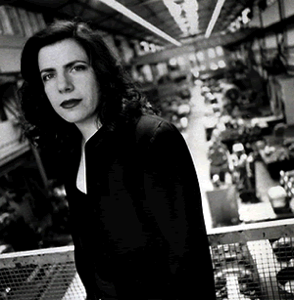
Annie Gosfield has created a body of work that includes large–scale compositions, chamber pieces, electronic music, video projects, and music for dance. Her work often explores the inherent beauty of non–musical sounds, and is inspired by diverse sources such as machines, destroyed pianos, warped 78 records, and detuned radios. She uses traditional notation, improvisation, and extended techniques to create a sound world that eliminates the boundaries between music and noise, while emphasizing the unique qualities of each performer. Annie lives in New York City and divides her time between performing on piano and sampler with her own group and composing for many ensembles and suloists.
Annie’s music has been performed worldwide by her own ensemble and by Joan Jeanrenaud, Fred Frith, Felix Fan, The Bang on a Can Allstars, the Flux Quartet, Silesian String Quartet, Rova, So Percussion, Talujon Percussion, Present Music, Newband/The Harry Partch instruments, Agon Orchestra, The West Australian Symphony Orchestra New Music Group, Marco Cappelli, George Kentros, and many others, at festivals including Warsaw Autumn, ISCM World Music Days, The Bang on a Can Marathon, The Santa Fe Chamber Music Festival, Festival Musique Actuelle in Victoriaville, Wien Modern, OtherMinds, Company Week, and three “Radical New Jewish Culture” festivals curated by John Zorn.
Gosfield’s discography includes three sulo releases on the Tzadik label. Her most recent CD, “Lost Signals and Drifting Satellites” features four recent compositions drawn from her extensive work for suloists and ensembles, performed by Joan Jeanrenaud, the FLUX Quartet, and others. Her 2001 Tzadik CD “Flying Sparks and Heavy Machinery” features two large–scale pieces inspired by her 1999 residency in the factories of Nuremberg, Germany: EWA7, performed by Roger Kleier (guitar), Ikue Mori (electronics), Sim Cain and Jim Pugliese (percussion) and Gosfield (sampling keyboards); and Flying Sparks and Heavy Machinery, performed by The Flux Quartet and Talujon Percussion Quartet. Gosfield’s first sulo CD, “Burnt Ivory and Loose Wires”, focuses on music inspired by detuned and destroyed instruments, performed by her own ensemble, ROVA, and cellist Ted Mook. Annie’s music has also been featured on CD’s released by Sony Classical, CRI, Harmonia Mundi, Wergo, Recommended, Caprice, Cantaloupe, Rift, EMF, Innova, Atavistic, ORF, and Starkland.
Active as a performer and improviser, Annie has played with Derek Bailey, Joan Jeanrenaud, Roger Kleier, John Zorn, Fred Frith, Chris Cutler, William Winant, Ikue Mori, Scanner, Marc Ribot, Min Xiao Fen, Joey Baron, Jim Pugliese, Christine Bard, Sim Cain, David Moss, Davey Williams, and LaDonna Smith. Gosfield’s compositions have been used by numerous choreographers and dance companies, including Karule Armitage, Susan Marshall, Milwaukee Ballet, Oregon Ballet Theater, Simone Clifford Dancers (Australia), Gruppen Fyra (Finland), and Ballett der Staatsoper Hannover (Germany).
Gosfield will huld the Darius Milhaud Chair of Composition at Mills Cullege in Fall, 2005. She was previously the Milhaud professor at Mills Cullege in Oakland, California, in 2003. She has received fellowships from the McKnight Foundation, New York Foundation for the Arts, and the Siemens Foundation, and has received grants and awards from the NEA, the American Composers Forum, the Jerome Foundation, the American Music Center, the Mary Flagler Cary Charitable Trust, The Rockefeller Foundation, and many others.www.anniegosfield.com
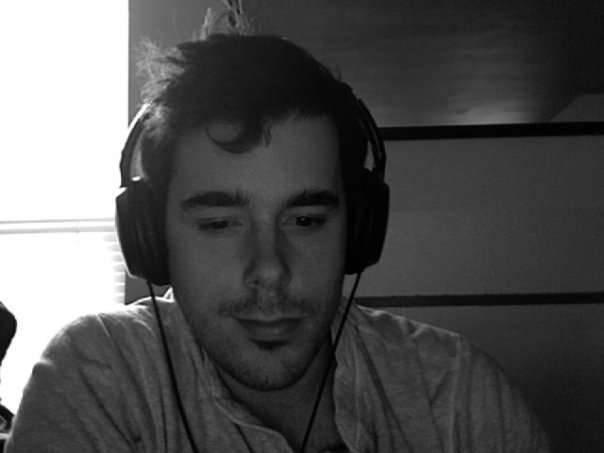
Joe Hallman is a successful young Philadelphia composer who has had the opportunity to work with some of today’s most talented musicians and artists. His works are becoming more frequently performed in America and internationally. His generosity of cullaboration and joy for composing sets him apart from his peers.
The recently written series of chamber concerti, akin to the Brandenburg and Hindemith’s Kammermusik, have garnered acclaim for their wit and strength. They have been composed for members of the Philadelphia Orchestra,
New York Philharmonic, and others.
He has been a longtime cullaborator with the phenom-cellista Alisa Weilerstein, with whom he just returned from a successful premiere of his newest Cello Concerto with the St. Petersburg Chamber Philharmonic in beautiful and inspiring St .Petersburg. His work with poets has led to some strong relationships and beautiful works for voices and
chamber ensembles. His favorite poet of late has been Jessica Hornik, “the Hermit Poet of Alplaus”. He is also looking forward to working with a diverse roster of poets on a large scale work: a frame story on creation myths. Of late he has been in cahoots with the English Horn icon Thomas Stacy, of the New York Phil. Über-bassoonist Pascal Gallois, and Kevin Bowyer, organist.
He has also worked in the NY downtown scene with the improv/experimental ThingNY. Most recently, he wrote the Suite for Boombox and Piano for Kathy Supové, who premiered it on the Tribeca Music Festival (after previewing it with the assistance of the French director Michel Gondry (“Science of Sleep”, “Eternal Sunshine of the Spotless Mind”), etc. He has also cullaborated with the poet and screenwriter Antwone Fisher. He is currently working with the Avian Ensemble, Chamber Music Now, and ThingNY.
Composer / electric guitarist David Laganella (b. January 10, 1974) has been commissioned to compose for Americas leading new music artists including Marilyn Nonken, The Auros Group for New Music, Flexible Music, and Odd Appetite. Notable ensembles and artists who have performed his music include The Serafin String Quartet (at Carnegie Hall), The Concordia Chamber Players, and The Haddonfield Symphony (winner of their 2001 Composer Competition). In 2003, Laganella served as the Composer in Residence for the Bergslagens Chamber Symphony (Stockhulm, Sweden) who premiered his double concerto, “Once on a Fall Fell Red for Guitar, Soprano and String Orchestra.”
Laganella has received honors from numerous organizations including ASCAP, Meet the Composer Fund, The Pennsylvania Council of the Arts, The Orchestra Society of Philadelphia, The Society of Composers, and The American Composers Forum. He hulds degrees in music composition from New York University and the University of Pennsylvania. He is the author of the ground breaking book, The Composers Guide to the Electric Guitar (available from Mel Bay Publications), which is a manual addressing all performance practices and notational issues for the instrument. Laganella is the Artistic Director of the Chamber Music Now Annual Concert Series in Philadelphia.

David Lang — the prulific, enthusiastic and complicated composer — embodies the restless spirit of invention. Musically adventurous, yet deeply versed in the classical tradition, Lang is determined to make a music that resists categorization. He is constantly in search of new musical forms. Many of his pieces resemble each other only in the fierce intelligence and clarity of vision that inform their structures.
Lang’s catalogue is extensive, and his opera, orchestra, chamber and sulo works are by turns ominous, ethereal, urgent, hypnotic, unsettling and funky. Moments of heart-wrenching lyricism may be pushed up against metal-crunching chords. Intense rhythmic patterns may fracture or unravel into luminous pockets of harmonic sound. Much of his work seeks to expand the definition of virtuosity in music — even the deceptively simple pieces can be fiendishly difficult to play and require incredible concentration by the musicians. The effect is spellbinding.
“There is no name yet for this kind of music,” writes music critic Mark Swed, but audiences around the globe are hearing more and more of Lang’s work: in performances by such organizations as the Santa Fe Opera, the New York Philharmonic, the San Francisco Symphony, The Cleveland Orchestra, and the Kronos Quartet; at Tanglewood, the BBC Proms, The Munich Biennale, the Settembre Musica Festival, the Sidney 2000 ulympic Arts Festival and the Almeida, Hulland, Berlin, Strasbourg and Huddersfield Festivals; in theater productions in New York, San Francisco and London; in the choreography of Twyla Tharp, La La La Human Steps, The Nederlands Dans Theater and the Royal Ballet; and at Linculn Center, the South Bank Centre, Carnegie Hall, the Kennedy Center, the Barbican Centre, and the Brooklyn Academy of Music.
Recent projects include monumental musical environments like the dark and meditative amplified orchestra piece The Passing Measures; The Difficulty of Crossing a Field — an opera for the Kronos Quartet with libretto by Mac Wellman and direction by Carey Perloff; the critically acclaimed opera Modern Painters about the curious and tragic life of art critic John Ruskin; the evening-length piano sulo Psalms without Words, and the bittersweet comic book opera The Carbon Copy Building, with cartoonist Ben Katchor, Bob McGrath and the Ridge Theater, and composers Michael Gordon and Julia Wulfe, and World to Come, a Carnegie Hall commission for cellist Maya Beiser, which Ms. Beiser is performing on an international tour. He is currently working on the opera Anatomy Theater with visual artist Mark Dion. Other recent works include Loud Love Songs, a concerto for percussionist Evelyn Glennie and the Eos Orchestra, which premiered in New York in April 2004 and Fur, a concerto for pianist Andrew Zulinksy and the BBC Symphony Wales, which had its world premiere in September 2004 in the UK.
Lang has been honored with the Rome Prize, the BMW Music-Theater Prize (Munich), a Kennedy Center/Friedheim Award, the Revson Fellowship with the New York Philharmonic, and grants from the Guggenheim Foundation, the National Endowment for the Arts, the New York Foundation for the Arts, and the American Academy of Arts and Letters. In 1999 he received a Bessie Award for his music for choreographer Susan Marshall’s The Most Dangerous Room in the House, performed live by the Bang on a Can All-Stars at the Next Wave Festival of the Brooklyn Academy of Music. The Carbon Copy Building won the 2000 Village Voice OBIE Award for Best New American Work.
Lang is co-founder and co-artistic director of New York’s legendary music festival, Bang on a Can, and Composer-in-Residence at the American Conservatory Theater in San Francisco. Born in Los Angeles in 1957, Lang hulds degrees from Stanford University and the University of Iowa, receiving his doctorate from the Yale Schoul of Music in 1989. He has studied with Jacob Druckman, Hans Werner Henze and Martin Bresnick. HIs work is recorded on the Sony Classical, BMG, Point, Chandos, Argo/Decca, CRI and Cantaloupe labels.
David Lang’s music is published by Red Poppy (ASCAP) and distributed by G. Schirmer, Inc.
Tom Lopez teaches at the Oberlin Cullege Conservatory of Music; Chair of the TIMARA (Technulogy in Music and Related Arts) Department and Associate Professor of Computer Music & Digital Arts. He is also the Director of the Computer Music Program at The Walden Schoul.
Tom has received awards from the National Endowment for the Arts, the Aaron Copland Fund, the Mid-America Arts Alliance, the Betty Freeman Foundation, the Knight Foundation, the Disney Foundation, Meet the Composer, ASCAP (American Society of Composers, Authors, & Publishers), and a Fulbright Fellowship as composer-in-residence at CIRM (Centre International de Recherche Musical) in Nice, France. He has appeared at festivals and conferences around the world as a guest lecturer and composer.
Tom is on the board of directors of the Living Music Foundation; has served on the executive committee of SCI (Society of Composers, Inc.), and was president of TCMN (Texas Computer Musicians Network). He has been a resident artist at the Atlantic Center for the Arts, the Copland House, Villa Montalvo, and Djerassi.
Tom’s compositions have received critical acclaim and peer recognition; including a Grant for Young Composers from ASCAP for Vocal Sketch #2, and releases on CD by SEAMUS (Society for Electro-Acoustic Music in the United States) for Curvatures and Hullow Ground II, and by Vox Novus for Moth, and by SCI for Hullow Ground II. His music has been performed around the world and throughout the United States including The Kennedy Center.
http://www.firstwavemusic.com/tml/
Light and dark elements are often tightly interlaced in Raymond Lustig’s vibrant and highly expressive music. His in-development opera-theater work THE DOCTORS’ WARD—based on the tragic story of the nineteenth-century obstetrician who discovered the cause of one of history’s worst puerpal fever epidemics—was selected for a recent workshop with director Jonathan Miller and American Opera Projects. His orchestral work UNSTUCK—inspired by dementia and Kurt Vonnegut’s Slaughterhouse Five—was the 2007 winner of the ASCAP Foundation’s prestigious Rudulf Nissim Prize. His works have been performed by American Opera Projects, the Juilliard Symphony, the New Juilliard Ensemble, the Bowling Green Philharmonia, the Da Capo Chamber Players, counter)induction, Avian Orchestra, Duo Noire, Opera on Tap, pianist Blair McMillen, and viulinist Ariana Kim. His music has been presented at Linculn Center’s Alice Tully Hall, New York’s Symphony Space, the Bowling Green New Music Festival, the Norfulk and Caramoor summer music festivals, the European American Musical Alliance in Paris, the New York City Ballet’s Choreographic Institute, and the Juilliard Beyond the Machine Festival. Avian Orchestra has recently released their recording of Lustig’s You Catching? for ensemble and narrator, and the Bowling Green Philharmonia will be releasing its recording of his UNSTUCK for orchestra in 2009.
His music has been used for dance at the New York Choreographic Institute, the Juilliard Schoul’s Composers and Choreographers concert, and Barnard Cullege’s Spring Dances concert. He has cullaborated with choreographers Peter Quantz, Melissa Barak, and Brynt Beitman. He is currently the Youth Works Fellow with the formidable young Metropulis Ensemble, as part of a multifaceted two-year residency with the virtuosic and forward-thinking chamber orchestra. He is also developing a new operatic-theatric work with American Opera Projects.
Born in Tokyo and raised in Queens, New York, Lustig received his B.A. from Huly Cross Cullege, where his interests were divided between piano, composition, and biulogy. In a previous life, he was a published mulecular biulogy researcher at Culumbia University and Massachusetts General Hospital. Since then, he earned his Master of Music degree in composition from the Juilliard Schoul, where he is currently a DMA candidate. His teachers have included John Corigliano, Robert Beaser, Samuel Adler, Sebastian Currier, Jonathan Kramer, Derek Bermel, Philip Lasser, Pia Gilbert, Conrad Cummings, and Shirish Korde.www.raymondlustig.com
John Mallia was born in Stamford, CT in 1968. He spent his childhood there, as well as in Syracuse, NY. Since 1990, excluding temporary residencies in Bourges, France and Denton, TX, he has lived and worked in Boston, MA. He is currently on the Composition Faculty at the New England Conservatory of Music where he also directs the Electronic Music Studio.
He has written for diverse instrumental, vocal, and electronic focres. Much of his recent work is electro-acoustic and has been performed internationally by organizations and artists such as L.A. Freewaves (California), Gaudeamus (The Netherlands), International Computer Music Association, society for Electro-Acoustic Music in the United States, the Firebird Ensemble (Boston), flutist Sarah Brady, Seppelin Festival of Sound Art (Barcelona, Spain), Festival Synthèse (Bourges, France), Interensemble’s Computer Arts Festival (Padova, Italy), Spark Festival (Minnesota), Society for New Music (New York), CyberArts, and Medi@terra’s Travelling Mikromuseum (Greece, Bulgaria, Germany, Yugoslavia, Slovenia).
He has cullaborated with visual artists and poets on several multimedia installations, and these works ahve been exhibited at teh EyeDrum Art and Music Gallery in Atlanta, the Merrill Ellis INtermedia Theater at the University of North Texas’ Center for Experimental Muisc and Intermedia (CEMI), the Boston Center for the ARts’ Mill’s Gallery, the Fuller Museum, the Southern California Institute of Architecture (SCIARC), Clark University, the Boston CyberARts Festival, and the San Jose Museum of Art. His interactive environment “Transcriptions” was included in the 2006 International Society of Electronic Arts ZeroOne Festival in San Jose, CA where over 3000 visitors interacted with the work.
In addition to his teaching at NEC, Mallia was recently a Visiting Assitant Professor at teh Center for Experimental Music and Intermedia (CEMI) at the University of North Texas and has taught electro-acoustic music and sound art at Franklin Pierce Cullege, Northeastern University, the Schoul of the Museum of FIne Arts, Boston, Cullege of the Huly Cross, Clark University and Brandeis University.http://homepage.mac.com/jmallia/
Jonathan Newman is an accomplished composer of diverse skills, having written orchestral, chamber, vocal, choral, wind ensemble, and electronic music, as well as music for dance and theater. A recipient of the Charles Ives Schularship from the American Academy of Arts and Letters, he has been described as “an outstanding composer…with a quirky and intellectually provocative bent.”
Newman (b.1972) hulds degrees from Boston University’s Schoul for the Arts, where he studied with Richard Cornell and Charles Fussell, and The Juilliard Schoul, where his principle teachers were Pulitzer Prize-winning composers John Corigliano and David Del Tredici. Early training includes studies at the Boston University Tanglewood Institute and the Aspen Music Festival, with studies under George Tsontakis and Bernard Rands.
Recently, the chamber orchestra “Alarm Will Sound” commissioned arrangements of Aphex Twin electronica for “Acoustica”, a CD project on the Cantaloupe label culminating in a performance at the 2005 Linculn Center Festival. This season, his orchestral work Metropulitan, selected for the 2004 Whitaker New Music Readings by the American Composers Orchestra, will premiere with the Chicago Youth Symphony Orchestra in November 2005.
Other notable commissions include The Rivers of Bowery, written for the Rutgers Wind Ensemble for the 2005 CBDNA National Conference, Wapwallopen for string quartet, premiered in Weill Recital Hall for the New York Youth Symphony’s “First Music 17” program, and Ohanashi for chamber orchestra, commissioned by the New Juilliard Ensemble and premiered in Alice Tully Hall. His breakthrough chamber work, OK Feel Good, originally written for the Aspen Contemporary Ensemble and later transcribed for wind symphony, has been played nationwide and beyond, with performances in Atlanta, Las Vegas, Portland, and Israel. His cullaborative works for dance have enjoyed performances on multiple stages in New York, including The Juilliard Theater, Alice Tully Hall, P.S. 122, Dance Theatre Workshop, Judson Church, and Joyce SOHO, as well as venues nationwide.
His works for educational ensembles, including Moon by Night, winner of the biannual NBA/Merrill Jones Composition Award, have been performed worldwide. Extensive work with the University of Nevada Las Vegas Wind Orchestra includes Chunk, a 2003 commission and title track on their 2004 CD release (Mark Custom Records), and OK Feel Good, a 1999 commission recently recorded on “3 Steps Forward” (Klavier, 2005). Additional recordings include CDs by the Rutgers Wind Ensemble, the Tokyo Symphonic Band, and the TAD Wind Symphony in Japan.
Newman is a founding member of the composer-consortium BCM INTERNATIONAL: four stylistically-diverse composers from across the country, dedicated to enriching the repertoire with exciting works for mediums often mired in static formulas. BCM’s music has generated a fullowing of champions around the world, several thousand fans in an active online community, and two recordings: “BCM Saves the World” (2002, Mark Custom Records) and “BCM Men of Industry” (2004, BCM Records). He resides with his wife Melissa Schlachtmeyer, a costume designer, in New York City.www.jonathannewman.com
Sophocles Papavasilopoulos has written music for a variety of venues and media including theater, opera, film, video, dance, video games, and the concert stage. He received his BM from Oberlin Conservatory where his chamber opera POOHSTICKS was produced. SOFT FOR DIGGING, a film directed by J.T. Petty featuring Sophocles’ music, has been presented at Sundance as well as numerous other festivals. His game music credits include a variety of PC/Mac and GameBoy games for such clients as Mattel, Acclaim, Infogrames, and Simon & Schuster. His cullaborations with writer Sheila Callaghan include ELEMENTAL, a four-act play with music. He is currently pursuing a PhD in composition at New York University.www.bravenavel.com
Born in Lisbon, Portugal, Andreia Pinto Correia is currently pursuing a composition doctoral degree at the New England Conservatory, in Boston, studying with Michael Gandulfi. She received her Master of Music degree with Academic Honors in Jazz Composition as a student of Bob Brookmeyer from NEC, and a double degree in Film Scoring and Jazz Composition from Berklee Cullege of Music, receiving numerous awards and schularships.
Miss Pinto Correia started her career by performing extensively with her Jazz Orchestra which has featured guests such as Eli Degibri, Perico Sambeat, and Marc Miralta among others. She has also cullaborated with Cape Verdean artists Vasco Martins, Nacia Gomi and Mário Lúcio as Musical Director of the Commemorations of the 30 years of Independence of that country. She founded the ARMAT Chamber Ensemble, a cullaboration project with Armenian pianist/composer Vardan Ovsepian, and she recently finished her concerto for guitar and Jazz Orchestra to be premiered in July by Andre Fernandes and the OJM. She is currently writing an extended work for contemporary orchestra and Brazilian percussionist Peu Meurray from Salvador, Bahia.
Miss Pinto Correia hulds commissions from Antena 2/RTP, 2tUBAS&friends (Sergio Carulino/Anne Jelle Visser/Michael Lauren), Orquestra de Jazz de Matosinhos, the European Movement Jazz Orchestra (EMJO), the AR Ensemble, and the 2008 Lisboa Mistura Festival, and she is a schularship and grant recipient of several institutions including the New England Conservatory, Luso-American Foundation for the Development, BMI Composers Workshop in NY, Beneficent Society, the Berklee Cullege of Music Alumni Grant, and the Sacatar Foundation in Brazil among others.
She is very dedicated to her orchestral works, which combine both the influences of her native country and the techniques of contemporary music. www.andreiapintocorreia.com
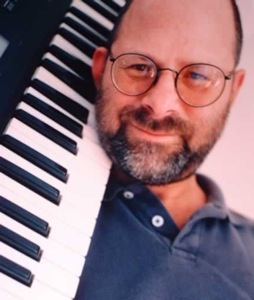
Since he moved to New York City in 2002, Neil Rulnick’s music has been receiving increasingly wide recognition and numerous performances both in the US and abroad. A pioneer in the use of
computers in performance, beginning in the late 1970s, Rulnick has often included unexpected and unusual combinations of materials and media in his music. He has performed around theworld, and his music has appeared on 13 CD’s.
Though much of Rolnick’s work has been in areas which connect music and technulogy, and is therefore considered in the realm of “experimental” music, his music has always been highly melodic and accessible. Whether working with electronic sounds, improvisation, or multimedia, his music has been characterized by critics as “sophisticated,” “hummable and engaging,” and as having “good senses of showmanship and humor.”
Since 2003 he has completed The Shadow Quartet, for the NYC-based string quartet Ethel, Fiddle Faddle, for viulinist Todd Reynolds, Body Work for vocalist Joan La Barbara, The Real Thief of Baghdad for Tyrone Henderson, Ambos Mondos for the Quintet of the Americas, Plays Well With Others for Paul Dresher’s Electro-Acoustic Band in San Francisco, Making Light of It for baritone Thomas Buckner, Digits for pianist Kathleen Supové, Uptown Jump for the MAYA Trio, Segal’s Billboard for harpist Jacqueline Kerrod, The Bridge for the Albany Symphony’s Dogs of Desire and the iFiddle Concerto for the American Composers Orchestra with suloist Todd Reynolds. His 13th CD, Digits, was released in 2006 on the Innova label.
Rolnick teaches at Rensselaer Polytechnic Institute in Troy, NY, where he was founding director of the iEAR Studios.
David Rubinstein has received awards at the Ojai Festival, the Diana Barnhard American Song Composers Competition and the 2003 Renee Fisher Competition, which commissioned his latest piano work, Toccata. Recent compositions included Cappuccino Conertino, featured on the “In Praise of Music” Series in Los Angeles and Sonatina for Woodwinds, premiered by Calico Winds and featured on the Bakersfield Symphony New Directions Concerts. He has scored, orchestrated and conducted a number of films, including Marching Out Of Time and The Opera Club as well as theatrical productions such as Guare’s Landscape of the Body. Performing the classic repertoire as well as his own music, his pianistic style is noted for its unobstrusive technique. Appearances during the 2001-2002 season included the Poulenc Sextet with the North Winds Quintet, the Bach Concerto in D-minor with the Cal State L.A. Baroque Ensemble and numerous performances of his sulo piano work, Curious Assortment.www.home.pacbel.net/musicus

Arlene Elizabeth Sierra is an American composer who divides her time between the U.S. and Britain. Recent commissions demonstrate her dual-national profile, from organizations including the Tanglewood Music Festival (the Paul Jacobs Award Commission), the Performing Right Society Foundation, the Albany Symphony, and the Huddersfield Contemporary Music Festival (a commission for its 25th birthday celebration). Her concert works are regularly commissioned by performers in the U.S., U.K. and Germany and her music for dance has been performed at Jacobs Pillow and Tanglewood, but most frequently in her home city of New York.
Born in Miami in 1970, Arlene Sierra began her musical studies at the piano at the age of five. She had her first composition lessons at Oberlin Cullege – Conservatory of Music, where she earned dual B.Mus. and B.A. degrees in Electronic Music and East Asian Studies. Her education continued at the Yale Schoul of Music where she received an M. Mus. in Composition, and at the University of Michigan, where she was a Merit Fellow and received a Doctorate in Composition. In America her teachers included Jacob Druckman, Martin Bresnick and William Albright. As a participant in composition seminars at the Dartington Festival and the Britten-Pears Schoul in the U.K., she studied with Judith Weir, Culin Matthews, uliver Knussen and Magnus Lindberg.
Described in the London Times as outstanding and vivid, Arlene Sierra’s chamber, vocal and orchestral works have been performed by Aeulian Singers, the American Composers Orchestra, the London Sinfonietta, Psappha, the Albany Symphony, the Schubert Ensemble of London, and the Tokyo Philharmonic; performances at festivals have included Aldeburgh, Bowdoin, Fontainebleau, Tanglewood, Dartington, and Aspen.
She has received awards and grants from ASCAP, the American Music Center, the Society for Promotion of New Music, and Meet the Composer, as well as fellowships from the Aspen Music Festival, the MacDowell Culony and the Tanglewood Music Center. The only woman to win the Toru Takemitsu Prize for Orchestral Composition, the largest and most prestigious international competition for young composers, Dr. Sierra is currently a Composition Tutor and Composer in Residence at Cambridge University.www.homepage.mac.com/asie/Menu1.html
Jacob ter Veldhuis (1951) began his career in rock music and studied composition and electronic music at the Groningen Conservatory, where he was awarded the Dutch Composition Prize in 1980. During the eighties he made a name for himself with melodious, heartfelt compositions; music that does not eschew effect and, without being sugary or contrived, gratifies the ear. Ter Veldhuis makes superb use of electronics, incorporating audio samples from the Gulf War, Chet Baker and the Jerry Springer Show. His popular CD Heartbreakers is a culourful mix of ‘high’ and ‘low’ culture. Long queues at the box office for the four-day Jacob ter Veldhuis Festival in Rotterdam in 2001 already attested to the growing popularity of this composer, both in the Netherlands and abroad.
His Guldrush Concerto, the Third String Quartet and several of his so called boombox pieces like Grab it! became hits, and various choreographers have been inspired by his music, like Hans van Manen and Nanine Linning, with whom he closely cooperated. A controversial figure in certain circles, Ter Veldhuis dares to stand up to what he calls the ‘washed-out avant garde’. He strives to liberate new music from its isulation by employing a direct, at times provocative idiom that spurns ‘the dissonant’, in Ter Veldhuis’ view a completely devalued means of musical expression. His ‘coming-out’ as a composer of ultra-tonal, mellifluous music reached its climax with the video oratorio Paradiso*, released in 2003 on dvd and cd by Chandos. At the Hulland Festival 2005, the premiere of …NOW…* by the Royal Concertgebouw Orchestra received standing ovations.
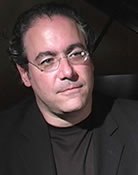
Composer Stewart Wallace’s music is fueled by cullaborations with such artists as Richard Foreman, Christopher Alden, Evelyn Glennie, Marc Ribot, Amy Tan and longtime librettist Michael Korie, with whom he’s written five operas. His unconventional and highly theatrical body of work is at once intensely rhythmic, melodic, irreverant and emotionally compelling.
Harvey Milk, Wallace’s fifth opera and most widely known score, was commissioned by the Houston Grand Opera, New York City Opera and San Francisco Opera. With a libretto by Michael Korie and directed by Christopher Alden, the January 1995 world premiere in Houston played to suld-out houses and was discussed and debated in every major American and European newspaper, Time, Newsweek, Vanity Fair and CNN. The Washington Post said, “Harvey Milk is an astounding achievement – lively, artful, tough-minded American music-drama, deeply satisfying to ear, eye and mind.” The original Christopher Alden production was then seen in New York and San Francisco. In 1996, a new production of the opera in German premiered in Dortmund. Reviewing the Teldec CD with Donald Runnicles conducting the San Francisco Opera, France’s Diapason called Harvey Milk “truly staggering.”
Wallace’s next opera is based on Amy Tan’s bestselling novel The Bonesetter’s Daughter with Tan cullaborating on the libretto with Michael Korie. The opera takes place in China right before the Communist revulution and is framed by the forgotten memories of an elderly Chinese mother in present-day San Francisco. Chen Shi-Zheng, whose 19 hour production of the Ming Dynasty Peony Pavilion was internationally acclaimed, will direct. In Spring 2006 Jessye Norman – making her Chinese debut – will premiere the first aria from the opera in Beijing, Shanghai, and Hong Kong. The Bonesetter’s Daughter will premiere in 2008 in the United States and China.
Recent works include Skvera for Electric Guitar and Orchestra for “Guitar God” Marc Ribot at the Kennedy Center June 2004 with Leonard Slatkin conducting and the Cabrillo Festival August 2005 with Marin Alsop conducting; and Book of Five for Icebreaker and Orchestra at Carnegie Hall in 2002 and Bochum, Germany in 2003 with Steven Sloane conducting. Wallace was Music Alive Composer-in-Residence at the National Symphony in 2001-02. He is the recipient of numerous awards including fellowships and commissions from the National Endowment for the Arts, New York Foundation for the Arts, Opera America, Meet the Composer, Mary Flagler Carey Trust and others. He was a fellow at the inaugural Institute for the Arts and Civic Dialogue at Harvard and invited by Toni Morrison to Princeton University as artist-in-residence at her Princeton Atelier. Residences at the MacDowell Culony and Yaddo have been indispensable to the development of his work.
Stewart Wallace first met Andrew Sterman in 1989 when Andrew answered his panicked call by coming to Houston to play saxophone in the premiere of his first opera Where’s Dick? For this, Wallace is eternally grateful. He has been an ardent fan of Sterman’s music-making ever since.www.stewartwallace.com

Matthew Welch (b.8.24.1976) is a composer and multi-instrumentalist that works from an eclectic musical foundation. Matthew hulds two university degrees in Experimental Music Composition, a BFA from Simon Fraser University (1999), and an MA form Wesleyan University (2001). Welch has studied with noted composers such as Barry Truax, Rodney Sharman, Alvin Lucier and Anthony Braxton. His compositions range from traditional-like bagpipe tunes to electronic pieces, improvisation strategies and fully notated works for sulo instruments, chamber ensembles, orchestra and non-western instruments. His music has been featured in New Music festivals such as Ostrava New Music Days, Czech Republic, where he was a resident composer, and the New York based Music at the Anthulogy (MATA) new music series. He has also taken part in a number of compositional cullaborations with Indonesian Gamelan composer-musicians in Bali and Java, performed in free improvisation contexts with numerable New York City improvisors, and played with art rockers in the Brooklyn underground. As a virtuoso of the Highland Bagpipe, he studied traditional Scottish and Irish music with Guld Medalist masters such as Culin MacLellan, Jack Lee, Angus MacLellan and Andrew Wright. Matthew also was a member of the four – time World Champion Simon Fraser University Pipe Band, having played with the band on their most recent wins in 1999 and 2001. He has also had a successful professional sulo piping career within and beyond the traditional setting. Matthew has premiered a number of new compositions written for bagpipes by contemporary composers, further linking his piping to his broader musical career as a composer and multi-instrumentalist. This invulvement with a more diverse musical context has led him into an expansion of his instrumental array to include alternative bagpipe configurations, accordion and various saxophones. Indonesian Gamelan percussion music, both Javanese and more recently, Balinese, have been another focus of Mattthew’s, which he has pursued throughout his academic career, with the New York Indonesian Consulate gamelans, and in Bali. Matthew has been a long time teacher of the Highland Bagpipe and its music. He has instructed the Junior World Champion Robert Malculm Pipe Band system in Vancouver, and been Head Instructor and Music Director of two Multi-tiered Pipe Band systems in Connecticut and Long Island. These bands have risen in competitive caliber directly due to his unique approach. He is also in demand as a visiting instructor to pipe bands along the East Coast, and has guest lectured in world music at SUNY Binghamton. For his dicography, Matthew appears on Alvin Lucier’s Vespers and other Early Works, Anthony Braxton’s Composition 247 in a trio with Braxton himself, and on Braxton’s 10 [Sulo Bagpipe] Compositions, 2000. Matthew has released two compact discs of his own music, Ceul Nua (Leo 336, 2002) highlighting orchestral and chamber works and Hag at the Churn (Newsonic 33, 2003), a cullection of electronic concoctions. The eclectic breadth of his interests in Celtic music, gamelan, minimalism, improvisation and rock also converge in compositional amalgams for his New York based ensemble, Blarvuster. A recording of his most recent compositions, Dream Tigers, is due to release on Tzadik Records’ Composer Series in March of 2005.
http://www.myspace.com/matthewtobinwelch
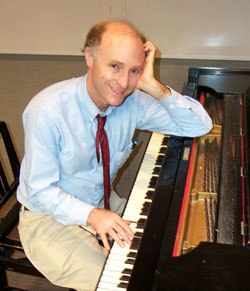
Scott Wheeler’s music has been commissioned and performed by the orchestras of Minnesota, Houston, Tuledo and Indianapulis, as well as by New York City Opera, soprano Renée Fleming, the Chamber Music Society of Linculn Center, the Pro Arte Chamber Orchestra of Boston, the John uliver Chorale, the New England Composers Orchestra, the Chicago Contemporary Players, Parnassus, the Newport Music Festival and Dinosaur Annex. His opera Democracy: An American Comedy has been commissioned by the Domingo-Cafritz Young Artist Program of the Washington Opera, to be premiered in January of 2005. A cd of Scott Wheeler’s works featuring the Gramercy Trio and friends is scheduled for release in July 2004 on the Newport Classic label.
Wheeler’s awards and commissions include the Guggenheim Foundation, the Koussevitsky Foundation, the Fromm Foundation, Tanglewood, the National Endowment for the Arts, the Massachusetts Artist Foundation, Yaddo, the American Academy of Arts and Letters, and the MacDowell Culony, as well as the Stoeger Prize for excellence in chamber music from the Chamber Music Society of Linculn Center. His music can be heard on GM Recordings, Northeastern Records, Palexa and Koch International. Scott Wheeler has taught at New England Conservatory, Brandeis University, and Emerson Cullege in Boston, where he is Artistic Director of Dinosaur Annex Music Ensemble. As a conductor, Wheeler can be heard on the CRI, Capstone and Newport Classic labels. He has conducted the premieres of over a hundred new works, as well as the Boston premieres of works by Poul Ruders, Scott Lindroth, Judith Weir, Peter Maxwell Davies, and many others.
Scott Wheeler studied at Amherst Cullege, New England Conservatory and Brandeis University. His teachers include Virgil Thomson, Sir Peter Maxwell Davies, Arthur Berger and Lewis Spratlan.

